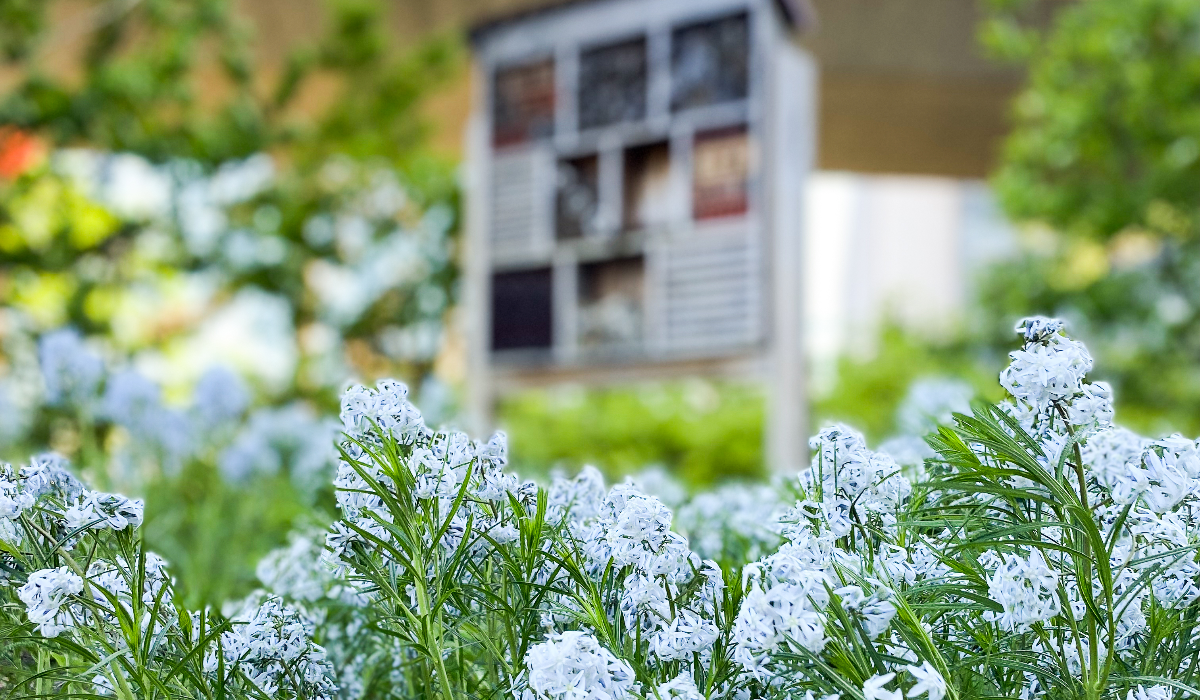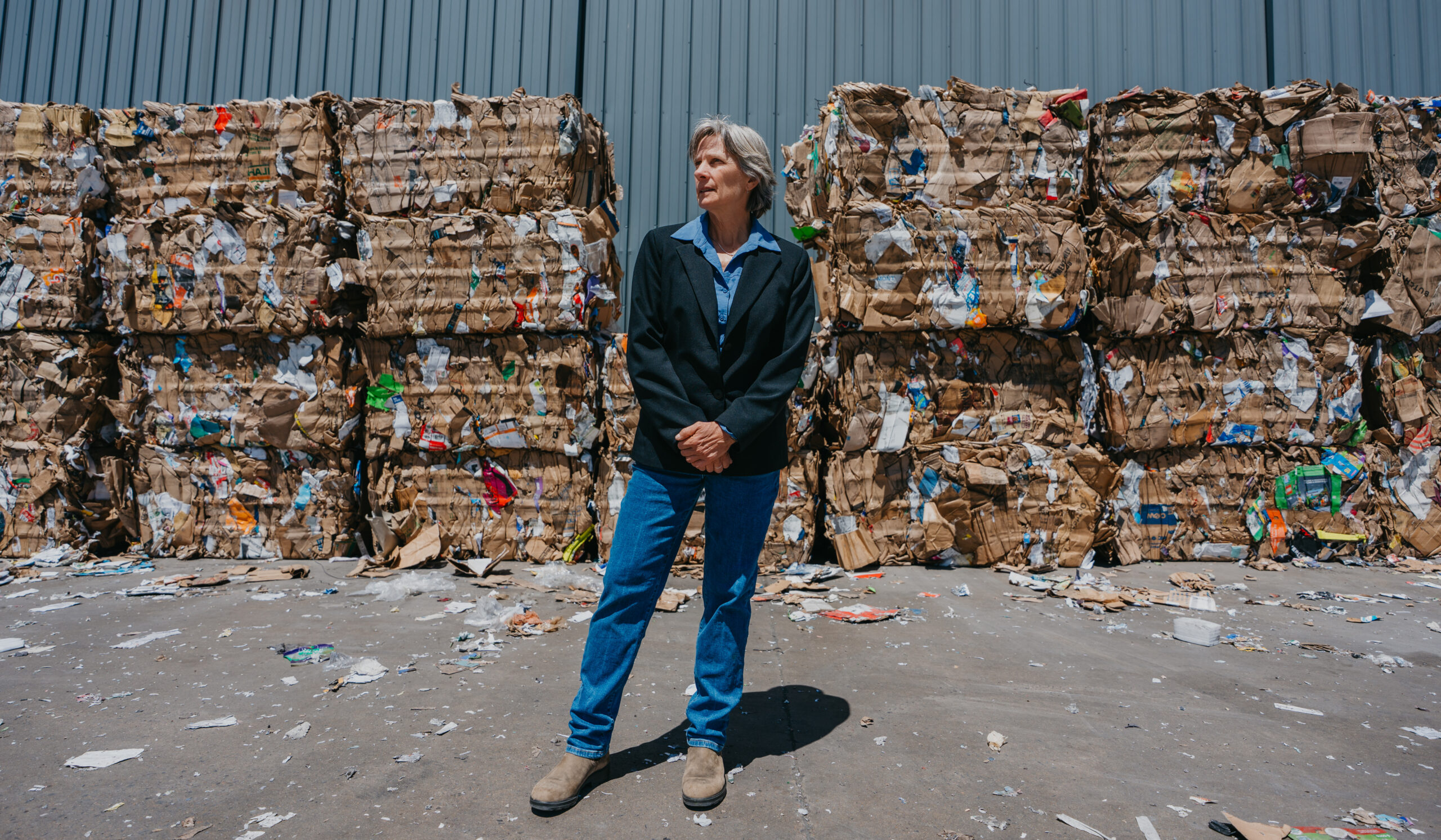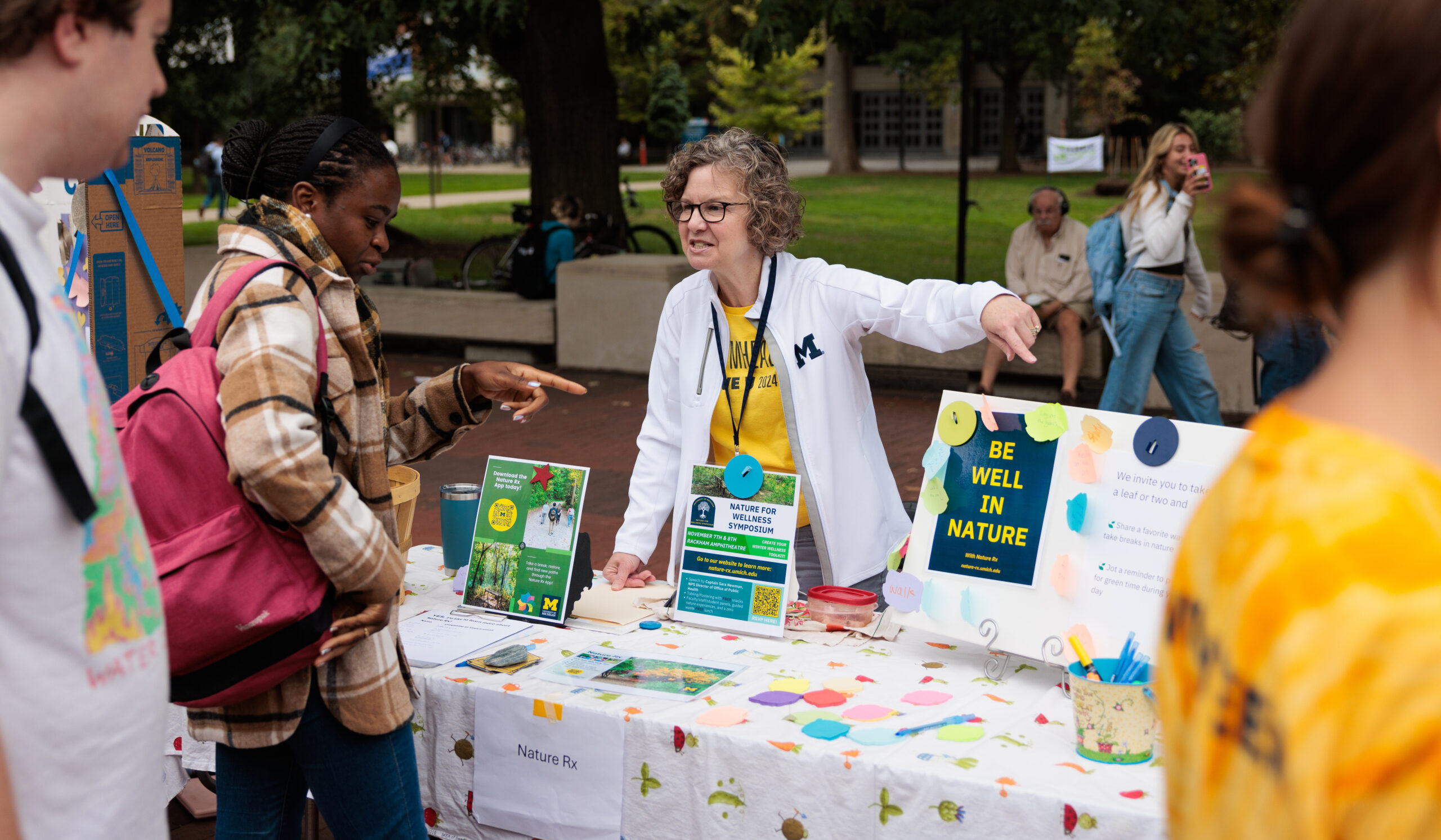Since setting sustainability goals in 2011, U-M has created new initiatives to support pollinators with native plant gardens and reduced pesticide use. But now, under the leadership of Sheila Schueller, who teaches ecosystem science and management courses at the School for Environment and Sustainability (SEAS), U-M students are joining the fight.
In 2021, Schueller led a masters’ project that engaged students in creating a garden on campus that would attract and support pollinators. They called their group SEAS Bees and outlined the need for a comprehensive pollinator plan at U-M.
The result is a 1,700-square-foot space under the pedestrian bridge next to U-M’s Museum of Natural History on Central Campus, with 17 native plant species. The team’s research suggests this garden should support pollinators whose biodiversity is threatened by habitat/forage loss in many urban green spaces.
“We’re seeing a decline in pollinators due to human pesticides and monoculture planting,” says Kira Berman, the assistant director for education at the museum.
Monoculture planting means planting only one species and includes turf “grass” and many manicured lawns. It’s replacing natural habitats, limiting pollinators’ feeding opportunities by time of year, location, and species diversity.
And pollinators, which include bees, wasps, moths, butterflies, and beetles, aren’t just working to make honey or spread more wildflowers.
“Our food depends on it. If you eat fruit, you’re eating the fruits of pollination,” Berman says, adding that not just humans, but all animals depend on pollination for food.
Schueller says pollinators can travel relatively long distances but will reach a particular destination only if there are desirable rest stops. So, before deciding where to locate the garden, the team surveyed the campus for linked habitats and began to track how pollinators used them.
“We can put florescent powder on flowers and go out at night to see if pollinators are moving between garden beds. A big garden with dense floral resources, and lots of different flowers, can really attract pollinators,” Schueller says. In the winter, bees can burrow in dead leaves or stalks or into the ground and begin pollinating again in the spring.
Led by William Kronberg, supervisor of horticulture for U-M’s Custodial and Grounds Services, the department provided tools, prepared the soil, and adjusted the irrigation system, while students designed and created the garden.
In October 2020, 12 volunteers planted nearly 400 native plant plugs, purchased from area nurseries, and transplanted 30 native plants from County Farm Park, a nearby Washtenaw County Park and project partner, according to the team’s project report.
“Maintaining it is still a work in progress,” says Kronberg, but volunteers keep the garden growing.
Thanks in part to this pollinator garden, the Ann Arbor campus became a certified Bee Campus in 2023, joining the Dearborn campus, which earned the designation in 2019. Becoming a Bee Campus means committing to creating or enhancing pollinator habitat each year by increasing the abundance of native plants, providing nest sites and reducing the use of pesticides.
Schueller hopes U-M will serve as a living laboratory and model for sustainability, and that it will help shift attitudes about what we consider great landscaping.
“We have a history of appreciating lawns with a single species of grass,” she says. But using native plants, allowing their stalks to remain over winter, and allowing diverse species “helps create stability and resilience of ecosystems in the face of climate change.”
Davi Napoleon, ’66, MA’68, is a freelance writer and theater historian.





